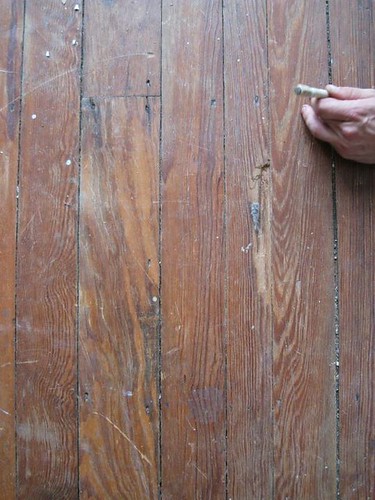Hardwood floors are typically fairly durable, but like any type of flooring, they take all sorts of abuse over the years. They can become warped, chipped, stained, dull, or any combination of the above, and eventually you are going to be faced with the question of whether you want to refinish or replace them. There are pros and cons to both options, and which route you take will likely be dictated by the extent of the damage to your floors and/or how much money you are willing to sink into them.
Under normal circumstances hardwood floors can go 20-30 years before needing to be refinished, and most floors can be sanded and refinished 6-7 times over their lifetime. So unless there is significant structural damage to the planks, or to the subfloor beneath them, your hardwood can usually be professionally refinished and touched up at a much lower cost than if you were to completely replace them. With that being said, this doesn’t mean that refinishing your hardwood floors will make them look brand new. If your floors are severely warped, chipped, or loosened, simply sanding and refinishing them will just brighten up badly damaged floors. Contractors can replace patches of damaged planks, or temporarily nail down loose or warped ones, but if the damage is pervasive enough, it might be best to just replace the floors altogether.
While replacing is almost always more expensive than refinishing, the upside is that it is usually a lot quicker and easier. Refinishing hardwood floors is a messy process that can take 4-5 days, during which time the floors can’t be touched. It requires brushes, basecoat sealer, topcoat sealer, sanders, edgers, and a lot of dirty work. Replacing, on the other hand, can be done with minimal mess by a professional contractor in as little as 1-4 days depending on the amount of floor that is being installed.
On a side note, if you do decide to go the replacement route, it would be worthwhile to look into engineered hardwood. Its slightly cheaper than solid hardwood, and it stands up to humidity and weather problems better because of its multilayer composition (usually only the top 1/8” is hardwood).
If you are trying to figure out what to do with your hardwood floors, feel free to give us a call. Our in-house licensed contractor can walk you through your options, and help you decide which one is best for you.


No comments:
Post a Comment